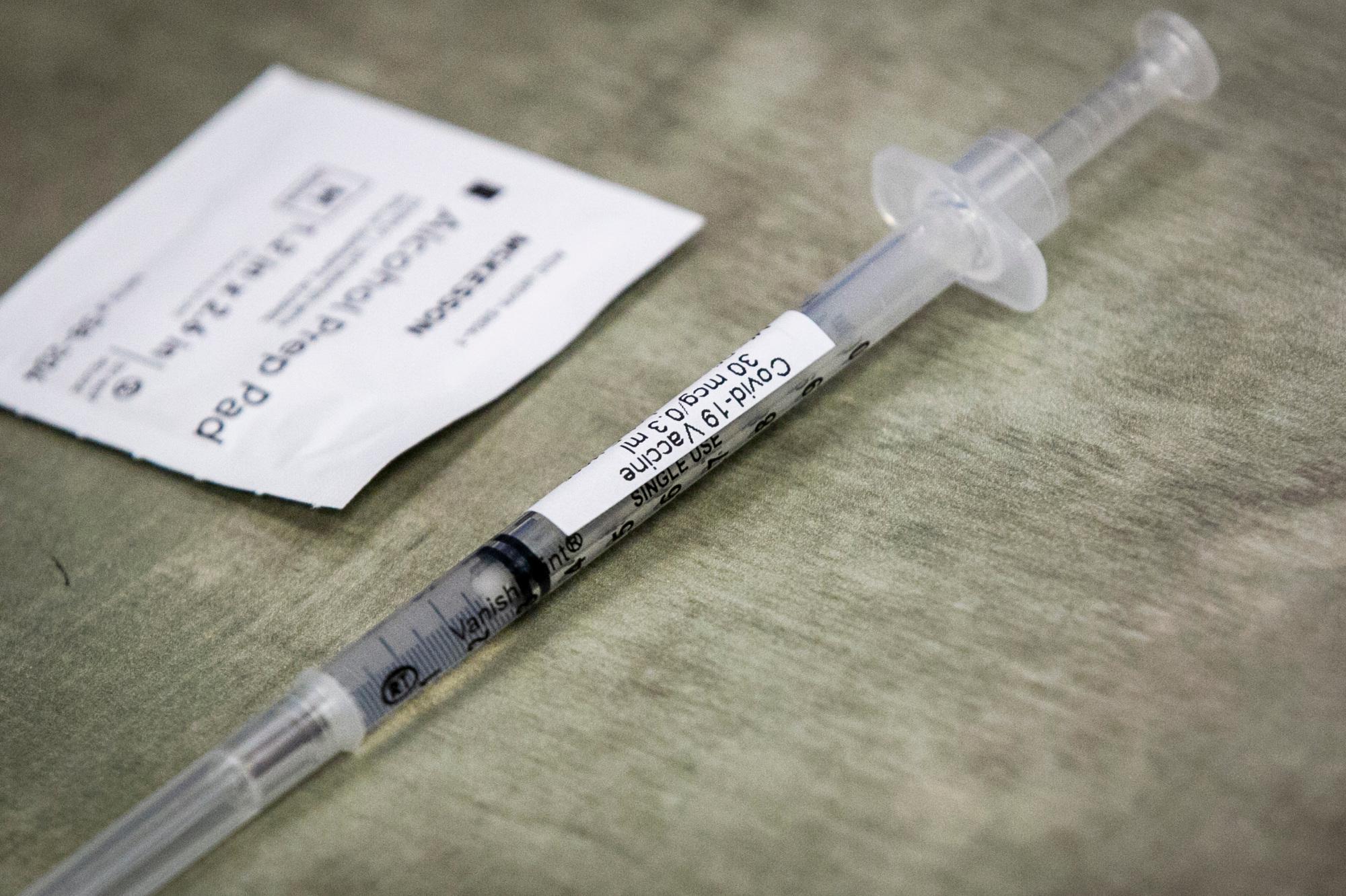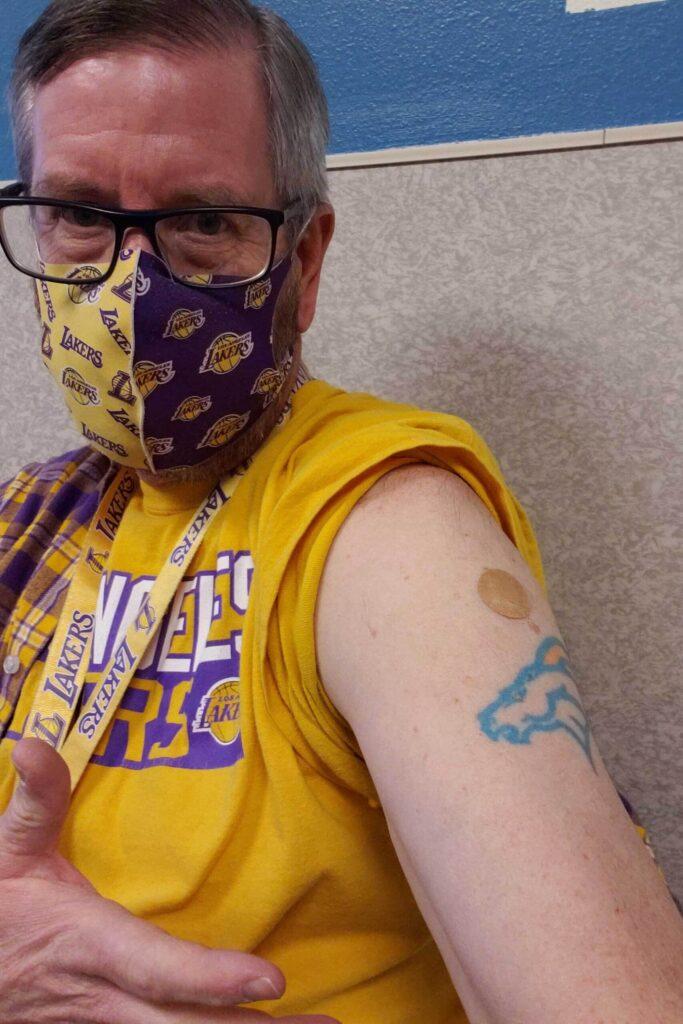
For Rhiannon Wenning’s high school students, history lessons during the ongoing COVID-19 pandemic are sometimes all too real.
“Last semester, when I was teaching about the black plague, students were able to make many comparisons and parallels between the black plague and what’s going on right now with COVID,” Wenning said. “Everything that we’re teaching they’re able to see and they’re experiencing themselves.”
But while teachers continue to do what they do — educate our state’s kids — many of them say they’re also putting themselves at serious risk of getting sick. Many school districts around Colorado either have or soon will transition back to full or part-time in-person learning.
The state’s teachers, as well as all student support staff in schools, are now eligible to start getting the vaccine effective Monday in phase “1B.2.”
When Gov. Jared Polis announced that teachers would be eligible to get the COVID-19 vaccine starting Feb. 8, he told teachers they should talk to their school district about getting the shot s. But right now, it’s not clear how well each school district will be able to connect the state’s more than 55,000 teachers with vaccinations.
And that’s not even considering how the state intends to vaccinate all the staff at licensed early childhood education facilities that aren’t connected to a school district.
“Our teachers are certainly filled with a lot of anxiety right now,” said Amie Baca-Oehlert, president of the Colorado Education Association, the state’s largest teachers union. “They certainly have that pull to want to be in-person with their students — that’s the best place they want to be. But they also have a fear around not having that layering protective strategy of a vaccine.”
Nationally, only about half of states in the U.S. are offering teachers vaccinations, though in some states, teachers are only eligible in certain counties, according to an analysis from The New York Times.
Wenning says she’s not sure how her district — Jeffco Public Schools — will handle the rollout. The district is working with Jefferson County Public Health.
“I really am lacking confidence in my district right now as far as rolling out vaccines, and especially if they’re telling teachers and educators to stop calling places to get signed up because there’s no appointments or not enough vaccines to go around,” Wenning said.
Baca-Oehlert said she hopes school districts have been spending time coordinating with health care providers and local health departments, so when the supply is ready, districts will be ready with plans.
“That’s one of the hardest things that we’ve seen since the vaccine rollout talk started is just this lack of clarity around plans and how things are going to work,” she said.
The largest school district in the state, Denver Public Schools, is partnering with Children’s Hospital to help teachers schedule appointments. DPS also started vaccinating some staff last week, ahead of the Feb. 8 rollout.
But for many teachers, the wait is putting teachers and their families at risk.
Katy Martin, who teaches third grade at DPS’ Willow Elementary School, lives with a family member who is at high risk for COVID-19. While Martin said she was able to get an accommodation from the district to continue working remotely, she said not all her colleagues have been granted the same accommodations.
“I regularly — multiple times a week — listen to educators cry, be worried that they’re going to bring this home to their young children or to their spouses,” Martin said. “I think it was a great first step to move educators up (the vaccine priority). I just think that it’s still a very scary time to be an educator in Colorado.”
DPS is prioritizing teachers at schools that serve students with a high rate of poverty — that is the percentage of children at a school who receive free or reduced price lunch.
Mike Maes, a special education teacher in Pueblo City Schools, says his district is working with the county health department and Kaiser Permanente, collecting info from teachers who want to get the vaccine. The district’s goal is to get all teachers there vaccinated this coming weekend.
“Ultimately it boils down to the supply chain, and teachers across the state are all very anxious about getting themselves vaccinated so that we can be safer in the schools,” Maes said. “It’s just another layer of security so that we can try to get back to normal classroom environments.”

Polis says the state is aiming at getting the first dose of the vaccine in the arms of all educators in the state within two or three weeks.
In Grand Junction, Kevin LaDuke was one of the first teachers in his school to get the vaccine. And he got it earlier than most — when the state initially opened up immunizations in phase 1B. Last Friday, LaDuke got his second dose, which is required for both COVID-19 vaccines currently approved for use in the United States from Pfizer-BioNTech and Moderna.
“Now the rest of the educators will get in hopefully starting Monday,” said LaDuke, who teaches sixth-grade social studies and science at Orchard Mesa Middle School, part of the Mesa County Valley School District 51. He hopes that as vaccines become available for teachers, it’ll “get things moving where we can get education back to [in-person] and all classrooms full.”
Baca-Oehlert said she believes it’s important that educators are high up on the vaccine priority list.
“Think about the critical role that our educators play and that our schools play in helping others [like parents] get back to work,” she said.









